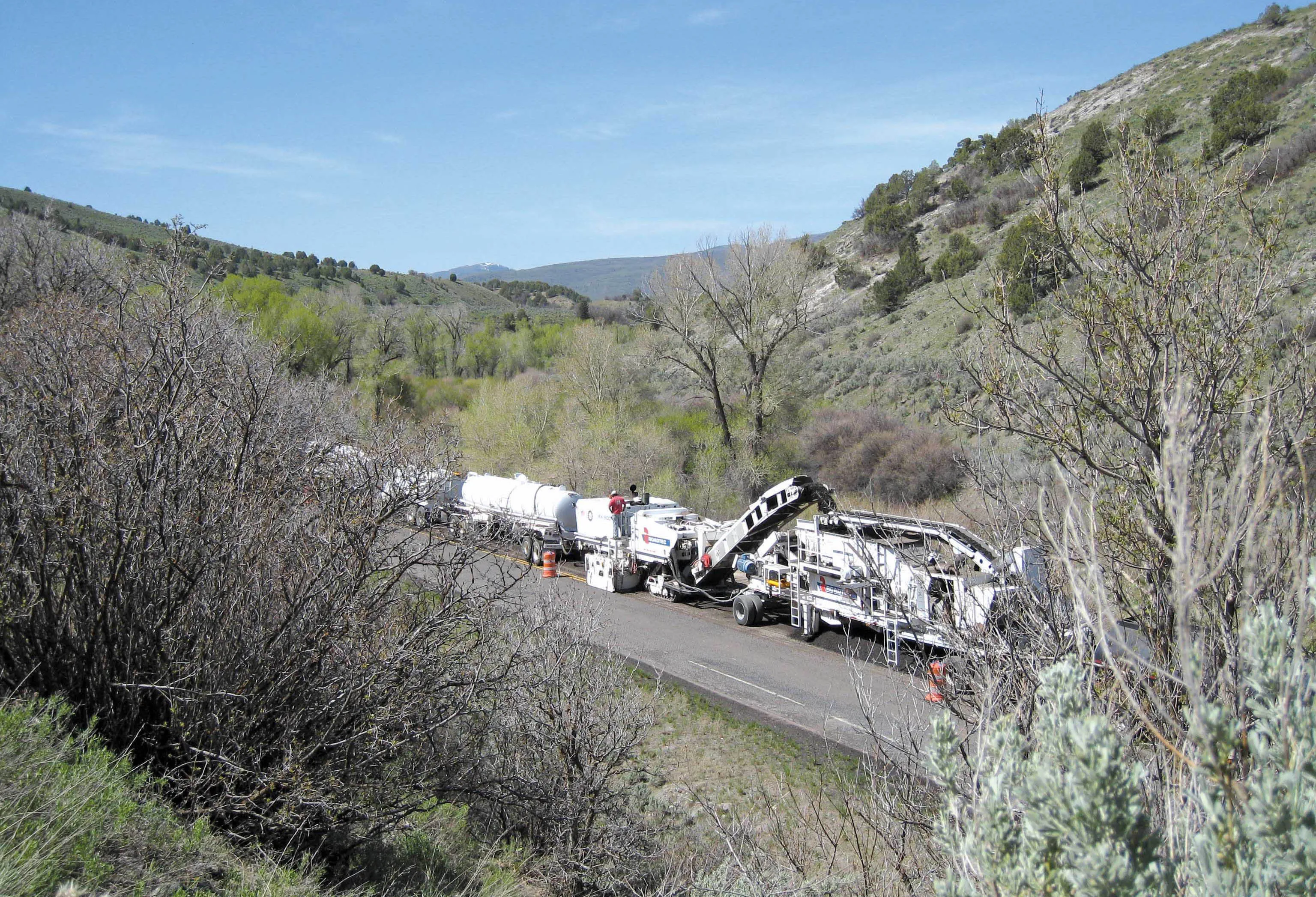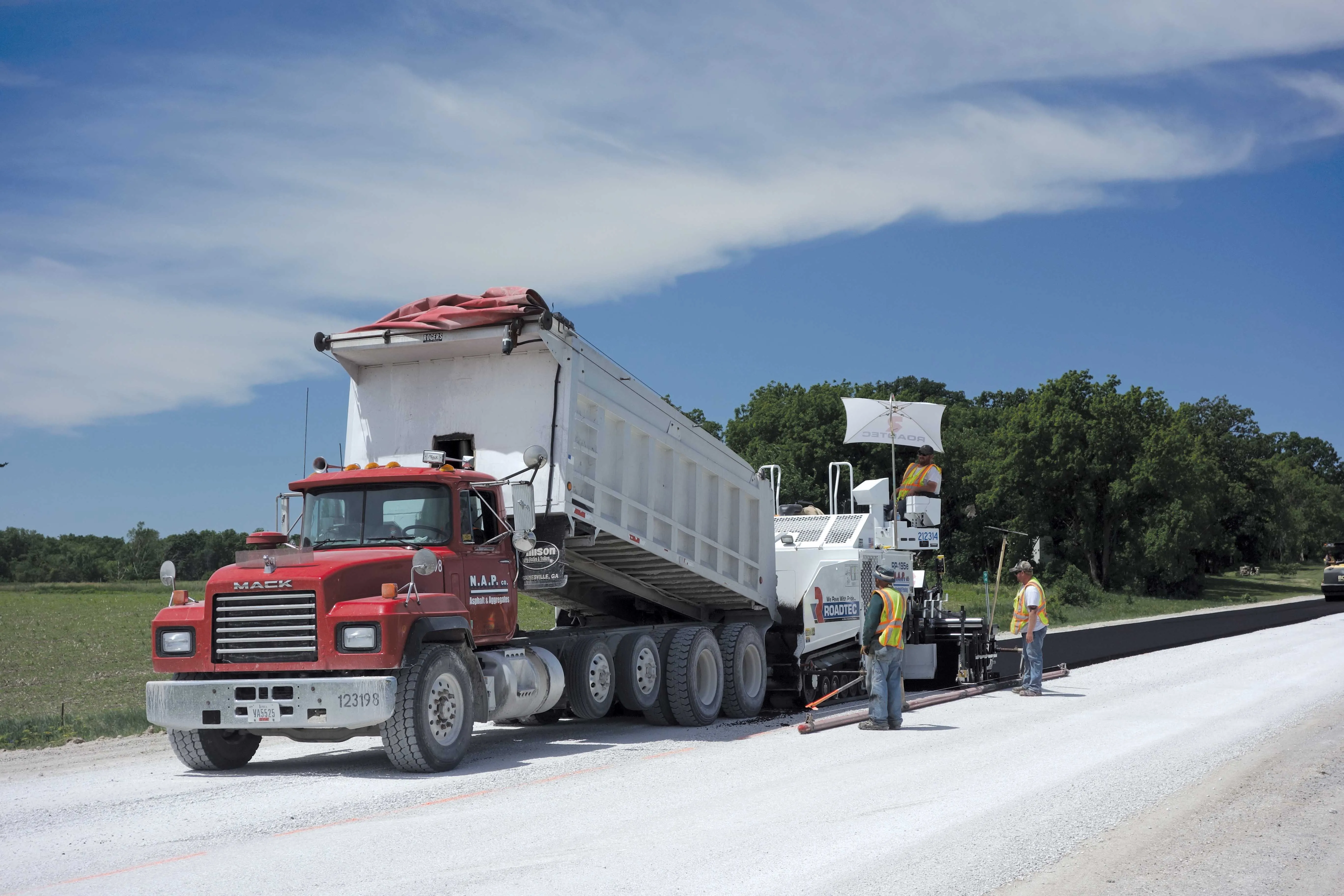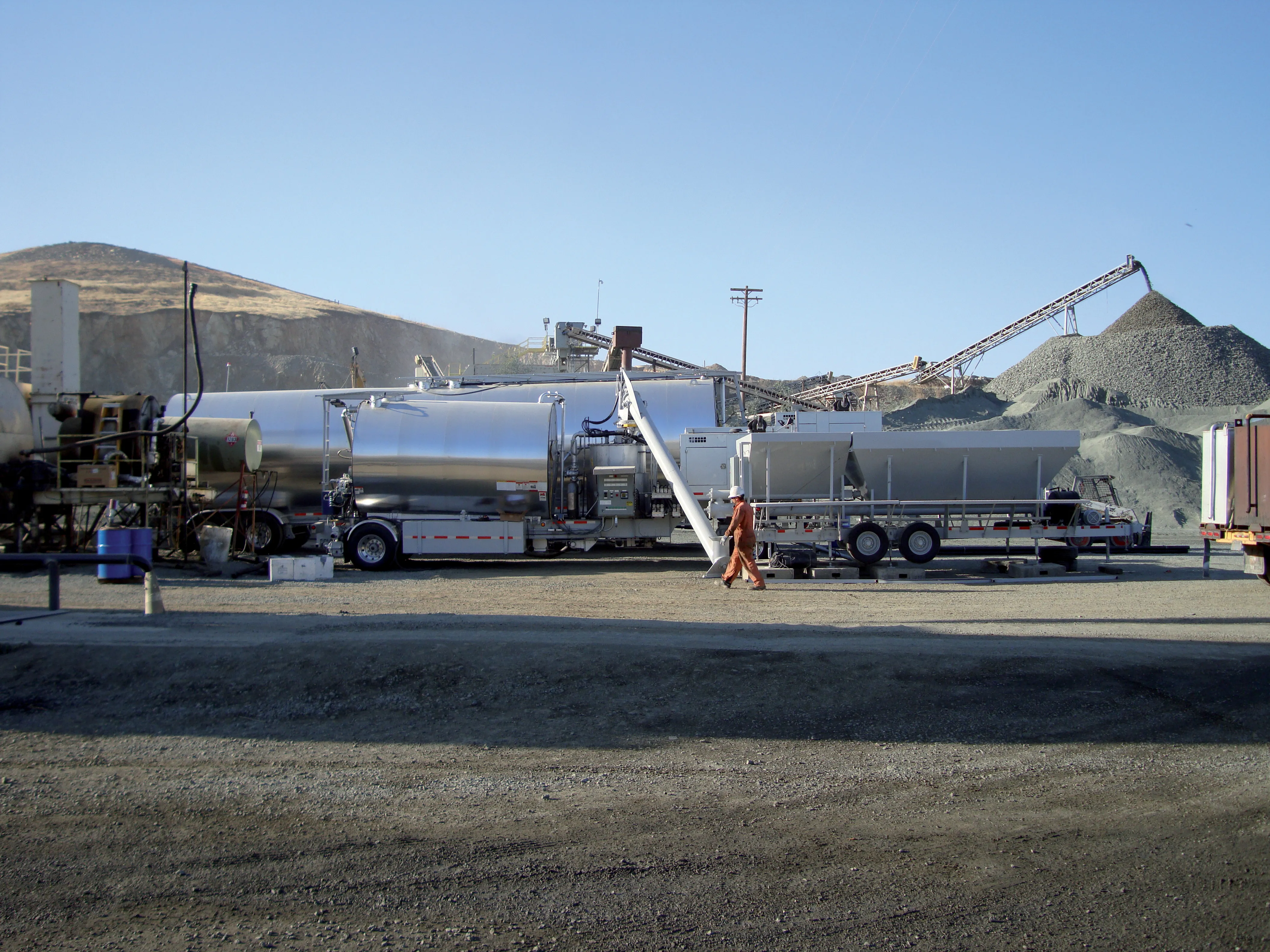Recycling of road surfaces has resulted in restoration and full renovation of a key California route. State Highway 137 in California’s San Joaquin Valley had suffered badly from the effects of weather, traffic and general ageing and the California Department of Transportation recognised the need to improve this route.
A 15km section of State Highway 137 west of Tulare, which lies about midway between Fresno and Bakersfield, in the heart of the Central Valley. The road runs through the vineyards and almo
July 15, 2015
Read time: 3 mins

Recycling of road surfaces has resulted in restoration and full renovation of a key California route. State Highway 137 in California’s San Joaquin Valley had suffered badly from the effects of weather, traffic and general ageing and the 2451 California Department of Transportation recognised the need to improve this route.
A 15km section of State Highway 137 west of Tulare, which lies about midway between Fresno and Bakersfield, in the heart of the Central Valley. The road runs through the vineyards and almond groves, and the agricultural producers appreciate the state getting the job done between spring and harvest time.
The project from the California Department of Transportation gave a tight schedule to lead contractor Papich Construction, along with its demanding road specifications. Coughlin Company, based in St George, Utah, was the sub-contractor for milling and cold-in-place recycling of the worn roadway, headed by Darren Coughlin. He said, “Our fleet includes 121252 Roadtec RX-900 cold planers with various cutter widths, a Roadtec RT-500 mobile recycle trailer that is fed and pulled by an RX-900, a CRMX2 Recycle Train, a Roadtec RX-400 cold planer with various cutter widths for narrow milling, a 1222 Terex CMI PR-600, two 178 Caterpillar pulverisers, two custom built cement spreader trucks, various trimmers, and various support equipment for central plant recycling and In place recycling,” he said.
The California Highway 137 road had aged and was displaying both transverse and longitudinal cracking. The rehabilitation project was ideal for cold-in-place recycle (CIR).
According to Coughlin, the benefits of CIR are substantial. He said that the Roadtec RT-500 mobile recycle trailer saves 30% in cost and 25% in time. In addition, the process reduces reflective cracking, substantially improving the road life cycle. Using a crew of seven, Coughlin Company finished the job within the allotted 10 days. The train used was a RX 900e milling machine towing an RT 500 mobile recycle trailer, plus support equipment.
When the situation does not require CIR, the machine does duty as a cold mobile mix plant. “It’s nice that the RT-500 recycle trailer can be set up to make cold mix from our RAP stockpile using emulsion or foam. Of course, we have options to add cement or lime if required.” The RT-500 also has a weigh bridge on board, which is designed to ensure accurate additive injection in the pugmill.
A 15km section of State Highway 137 west of Tulare, which lies about midway between Fresno and Bakersfield, in the heart of the Central Valley. The road runs through the vineyards and almond groves, and the agricultural producers appreciate the state getting the job done between spring and harvest time.
The project from the California Department of Transportation gave a tight schedule to lead contractor Papich Construction, along with its demanding road specifications. Coughlin Company, based in St George, Utah, was the sub-contractor for milling and cold-in-place recycling of the worn roadway, headed by Darren Coughlin. He said, “Our fleet includes 12
The California Highway 137 road had aged and was displaying both transverse and longitudinal cracking. The rehabilitation project was ideal for cold-in-place recycle (CIR).
According to Coughlin, the benefits of CIR are substantial. He said that the Roadtec RT-500 mobile recycle trailer saves 30% in cost and 25% in time. In addition, the process reduces reflective cracking, substantially improving the road life cycle. Using a crew of seven, Coughlin Company finished the job within the allotted 10 days. The train used was a RX 900e milling machine towing an RT 500 mobile recycle trailer, plus support equipment.
When the situation does not require CIR, the machine does duty as a cold mobile mix plant. “It’s nice that the RT-500 recycle trailer can be set up to make cold mix from our RAP stockpile using emulsion or foam. Of course, we have options to add cement or lime if required.” The RT-500 also has a weigh bridge on board, which is designed to ensure accurate additive injection in the pugmill.







